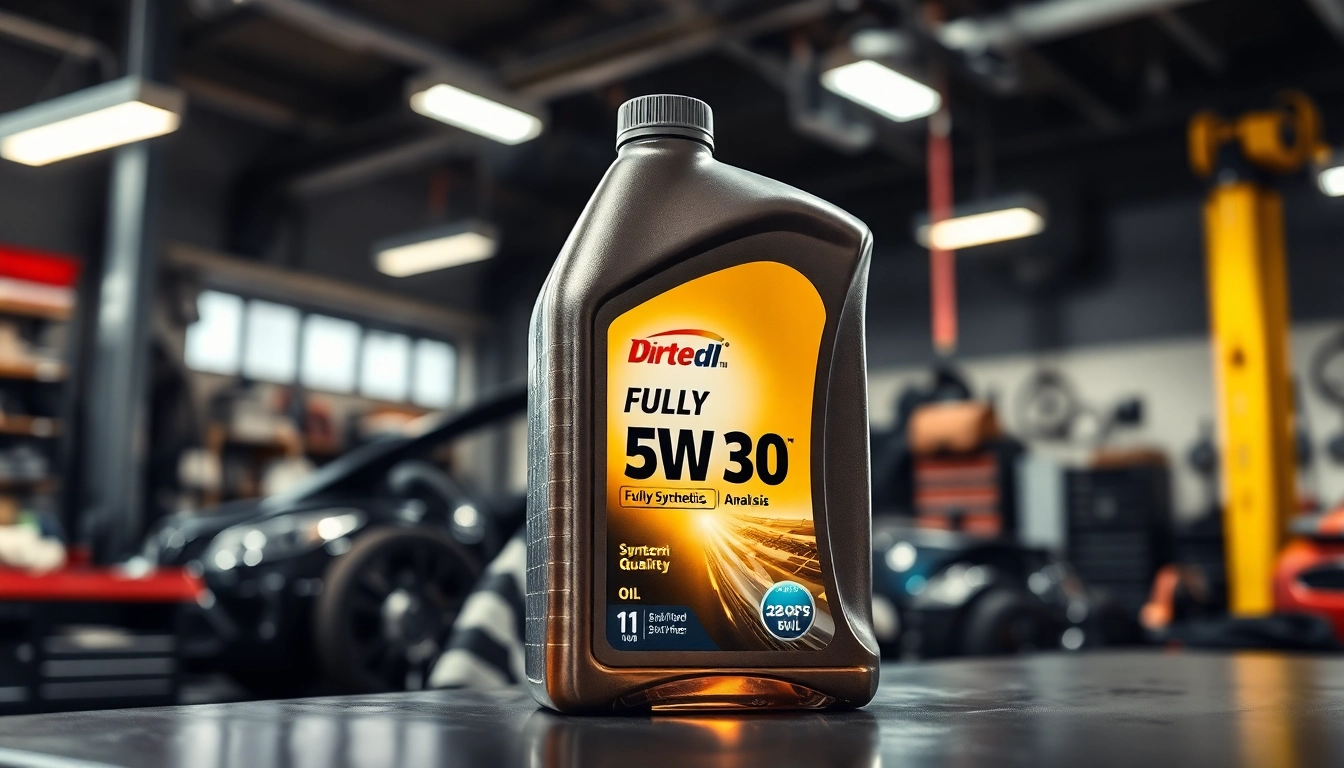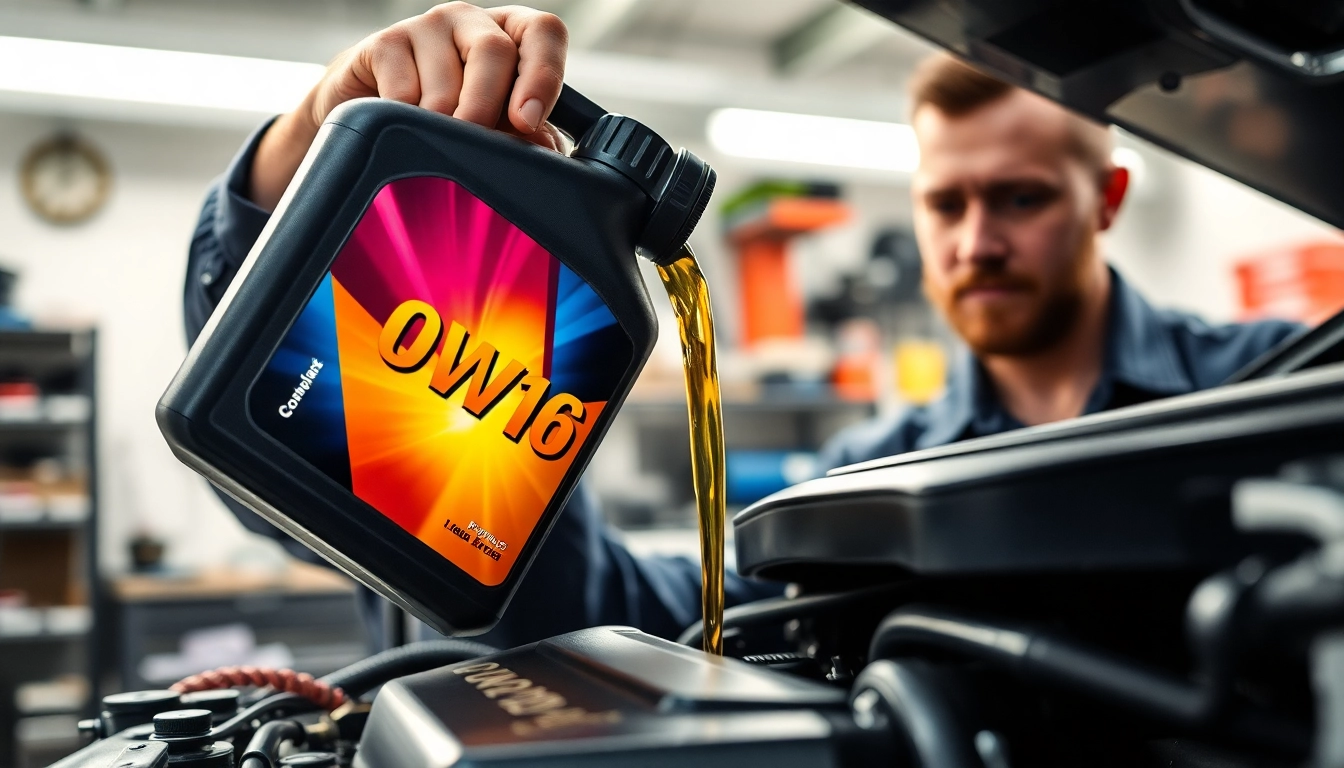Understanding Fully Synthetic 5W30 Oil
When it comes to keeping your vehicle’s engine running smoothly and efficiently, the choice of oil can make all the difference. Among the various types of motor oils available, fully synthetic 5W30 oil stands out as a popular option for many drivers. Its unique formulation not only enhances engine performance but also provides a range of benefits that conventional oils simply cannot match. In this comprehensive guide, we’ll discuss what fully synthetic 5W30 oil is, its key properties, and the many benefits it offers over traditional motor oils.
What is Fully Synthetic Oil?
Fully synthetic oil is engineered from synthesized chemical compounds, offering greater control over the viscosity and effectiveness of the oil compared to conventional oils, which are derived from crude oil. Unlike conventional motor oils, fully synthetic oils are designed to resist thermal breakdown, reduce friction, and perform well across a wide range of temperatures. The term “fully synthetic” indicates that the oil is manufactured entirely through chemical processes and does not contain any conventional base oils, resulting in a product that offers high performance and durability.
Key Properties of 5W30 Oil
The term 5W30 refers to the oil’s viscosity characteristics as defined by the Society of Automotive Engineers (SAE). The “5W” indicates the oil’s viscosity at low temperatures (the “W” stands for winter), while “30” denotes its viscosity at higher temperatures. This viscosity range is designed to provide optimal performance in various environmental conditions:
- Low Temperature Performance: The ‘5’ rating ensures that the oil will flow easily during cold starts, reducing engine wear.
- High Temperature Stability: The ’30’ portion provides good protection at higher temperatures, ensuring that the oil remains stable and maintains viscosity under stress.
These properties make 5W30 oil particularly versatile, making it suitable for a wide array of vehicles and driving conditions, particularly in temperate climates.
Benefits of Using Fully Synthetic 5W30 Oil
Using fully synthetic 5W30 oil brings with it a multitude of advantages:
- Enhanced Engine Protection: The superior lubricating properties reduce friction and wear on engine components, extending engine life.
- Improved Fuel Efficiency: Fully synthetic oils often feature better molecular consistency, which can lead to reduced drag and improved gas mileage.
- Longer Oil Change Intervals: Synthetics often last longer than conventional oils, meaning fewer oil changes and reduced maintenance costs.
- Superior Performance in Extreme Conditions: Whether it’s extreme heat or cold, fully synthetic oils can withstand broader temperature ranges without degrading.
Comparing Fully Synthetic and Conventional Oils
Differences in Composition
The most significant difference between fully synthetic and conventional oils lies in their composition. Conventional motor oils are derived from crude petroleum and require various refining processes to eliminate impurities. In contrast, fully synthetic oils are composed of artificially made molecules designed for optimal performance. This chemical formulation results in fewer impurities, leading to a cleaner-burning fuel and reduced engine deposits over time.
Performance Metrics and Engine Efficiency
When comparing performance metrics, fully synthetic 5W30 oil consistently outperforms conventional oils in several key areas:
- Viscosity Stability: Synthetics maintain their viscosity better under extreme temperatures and conditions.
- Oxidation Resistance: Fully synthetic oils are less likely to oxidize, leading to a longer lifespan of both the oil and the engine.
- Engine Cleanliness: The advanced detergents in synthetic oils help keep engines cleaner, reducing the risk of sludge formation.
These performance aspects contribute to improved overall engine efficiency, especially for high-performance vehicles or in demanding driving environments.
Cost Analysis and Long-Term Savings
At first glance, the price of fully synthetic 5W30 oil can be significantly higher than that of conventional oils. However, considering its longevity and enhanced performance, the long-term savings are often worth the investment:
- Few Oil Changes: Synthetic oil intervals can range from 7,500 to 15,000 miles, compared to 3,000 to 5,000 miles typically required for conventional oils.
- Maintenance Reduction: The added protection reduces the likelihood of engine damage and the associated repair costs.
- Better Fuel Economy: Improved fuel efficiency contributes to lower fuel costs over time.
In many cases, drivers find that switching to fully synthetic oils is a more cost-effective option in the long run.
Ideal Conditions for Using Fully Synthetic 5W30 Oil
Temperature Ranges and Climate Considerations
The 5W30 rating makes this oil especially suitable for a wide range of temperatures. It excels in both cold starts and high-temperature performance, making it ideal for use in numerous climates. In colder climates, the ‘5’ ensures the oil remains fluid, preventing engine damage during initial starts. In warmer climates, the ’30’ ensures optimal performance at operating temperatures.
Driving Conditions and Oil Performance
Fully synthetic 5W30 oil is particularly beneficial for drivers who frequently operate their vehicles under challenging driving conditions:
- Heavy Towing and Hauling: Under heavy loads, the higher viscosity and thermal stability prevent breakdown.
- Stop-and-Go Traffic: The oil’s ability to maintain viscosity helps in urban driving conditions that cause excessive wear.
- High-Performance Driving: For sports cars or vehicles that undergo rigorous driving, synthetic oils provide the needed protection.
Vehicle Types and Requirements
Many modern vehicles specifically recommend the use of fully synthetic oils due to their superior performance features. Luxury vehicles, high-performance sports cars, and vehicles equipped with turbocharged engines typically require or strongly recommend 5W30 synthetic oil to meet the required lubrication and performance specifications.
Best Practices for Changing Oil
Tools Needed for an Oil Change
Changing your oil can be a straightforward task if you’re equipped with the right tools. Here’s what you typically need:
- Oil filter wrench
- Socket set or wrenches
- Oil catch pan
- Funnel
- New oil and oil filter
- Gloves and rags for cleanup
Step-by-Step Guide to Changing Fully Synthetic Oil
Follow these steps if you’re planning to change your oil yourself:
- Warm up your engine for a few minutes to thin the oil, allowing it to drain more easily.
- Turn off your engine and let it cool for a few minutes.
- Lift the vehicle with jack stands if necessary.
- Place the oil catch pan under the oil pan and remove the drain plug, letting the old oil fully drain.
- Remove the old oil filter with an oil filter wrench, apply a bit of new oil to the seal of the new filter, and install it.
- Replace the drain plug and tighten it securely.
- Pour the new fully synthetic 5W30 oil into the engine using a funnel.
- Start the engine and let it run for a few minutes, checking for leaks.
- Check the oil level and add more if necessary.
Disposal and Environmental Considerations
Proper disposal of used oil is crucial for environmental protection. Never dispose of used motor oil in the trash or pour it down the drain. Many communities have designated recycling locations where you can safely dispose of old oil. Some auto parts stores may also offer recycling services.
Common Misconceptions about Fully Synthetic Oil
Debunking Myths Surrounding Synthetic Oil
Several myths surround synthetic oil that can confuse vehicle owners:
- Myth: Synthetic oil is only for performance cars. – Truth: While beneficial for high-performance engines, synthetic oils can enhance the performance of any vehicle.
- Myth: Synthetic oil causes leaks. – Truth: Synthetic oils can clean engines, sometimes revealing existing issues rather than causing them.
- Myth: Higher price means lower value. – Truth: The long-term savings and benefits typically make synthetic oils more economical.
Understanding Warranty Implications
Another common concern is whether using fully synthetic oil affects vehicle warranties. Most manufacturers allow the use of synthetic oil, provided the oil meets specific viscosity and performance standards. Always consult your owner’s manual or dealer for guidance on maintaining your warranty.
Expert Recommendations and User Experiences
Automotive experts and mechanics frequently recommend fully synthetic 5W30 oil for its reliability and proven performance in various driving conditions. Users often report enhanced engine responsiveness and better fuel efficiency after switching to synthetic oils, affirming the benefits outlined above.










Leave a Reply